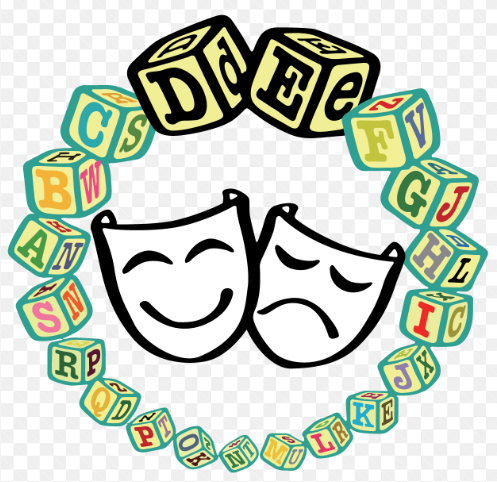The course allows students to read and explore an important branch of English literature called “drama.” Drama may be defined as a form of literature intended to be interpreted to an audience by actors who imitate the characters, recite the speeches and perform the action of the story. It is designed in such a way so as to familiarize students first with aspects of dramatic theory and various types of dramatic representations. The Course then proceeds to include an in-depth study on selected literary texts drawn from a wide range of historical epochs, starting from the Elizabethan age to the early 20th. Theoretical approaches are introduced that will enable students to engage critically on the texts, locating them in their political, cultural and historical contexts. Studying English Drama also gives students the freedom to explore their passion for theatre while developing knowledge associated with the study of literature.

- Teacher: Dr ANAMIKA SUKUL
"Forms of Journalistic Writing" is a comprehensive undergraduate course designed to introduce students to the diverse styles and techniques used in journalism. The course covers various formats such as news writing, feature writing, investigative journalism, opinion pieces, and multimedia storytelling. Through practical assignments and critical analysis of contemporary journalism, students will develop skills in research, interviewing, writing, and editing. This course aims to equip future journalists with the ability to produce compelling, accurate, and ethical content across different media platforms.

- Teacher: SRIVEDA BASWAPOOR
1. Instructor-In-charge : Shivakumar Reddy
Email ID : shivakumar@stmaryscollege.in
About the Instructor
Shivakumar Reddy joined in June 2024 as an Assistant Professor, bringing a wealth of knowledge and passion to the fields of Media Laws and Ethics and Development Communication. With a robust academic background and a keen interest in the evolving dynamics of digital culture and political communication.
Currently pursuing his PhD at Andhra University, Professor Reddy's research is at the cutting edge of contemporary media studies. His focus on digital culture and political communication addresses the critical intersections of technology, society, and governance. This research is not only timely but also crucial in understanding the rapid changes in how information is disseminated and consumed in the digital age.
Professor Reddy's teaching philosophy is both holistic and pragmatic. He is committed to educating students for both their professional careers and their personal lives. His approach combines compassion with skill development, aiming to nurture well-rounded individuals who are not only proficient in their fields but also empathetic and socially responsible.
His dedication to student success is evident in his engaging and inclusive teaching style. He encourages critical thinking, ethical considerations, and a deep understanding of the societal impacts of media and communication.
2. Course details
Course summary
This course is designed to cultivate a strong instinct for news and develop essential journalistic skills in students. It covers the organizational structure of newspapers, introduces fundamental editing techniques, and familiarizes students with relevant media laws. By the end of the course, students will be proficient in identifying various aspects of news, effectively editing news reports, and understanding the legal frameworks governing media. The engagement is on the basis of dialogue and delivery while we explore the topics together through focussed lectures, readings, screenings & group discussions.
Course objectives:
· To develop nose for news.
· To impart journalistic skills to the students.
· To enable the students to understand the organizational structure of newspapers.
· To introduce editing.
· To familiarize the students with media law
- Teacher: SHIVA KUMAR REDDY
One of the significant outcomes of Higher Education is to prepare for entering the job or employment market. Besides the knowledge and skill set required for a particular job or occupation, professional skills are also required to be gainfully employed and to enjoy a successful and satisfying life. Professional skills are part of life skills. We should be able to demonstrate professional skills involving the use of intuitive, logical critical thinking, communication and interpersonal skills which are not limited to cognitive and creative skills. These skills, behaviour, and quality of output enhance employability. The Course on Professional Skills is divided into two parts: A. Career Skills and, B. Team Skills
Career skills empower us with the ability to prepare appropriate résumés, address the necessary gaps for facing interviews, and actively and effectively participate in group discussions thereof. It is also of significant importance that we possess the know-how to explore career opportunities for ourselves, recognizing our innate strengths and weaknesses.
We must be well prepared to take on new challenges and opportunities. With the increasing use of technology in the way we live, learn and work, we must be able to utilize basic computing concepts and also have and espouse excellently. Team skills, collaborating and working together can assist in resolving complex problems, which allow us or offer us the opportunity to articulate new ideas and perspectives. It further allows us to design, develop, problem-solve, and adapt to situations based on experience and skills.

- Teacher: Dr. RAMESH KUMAR